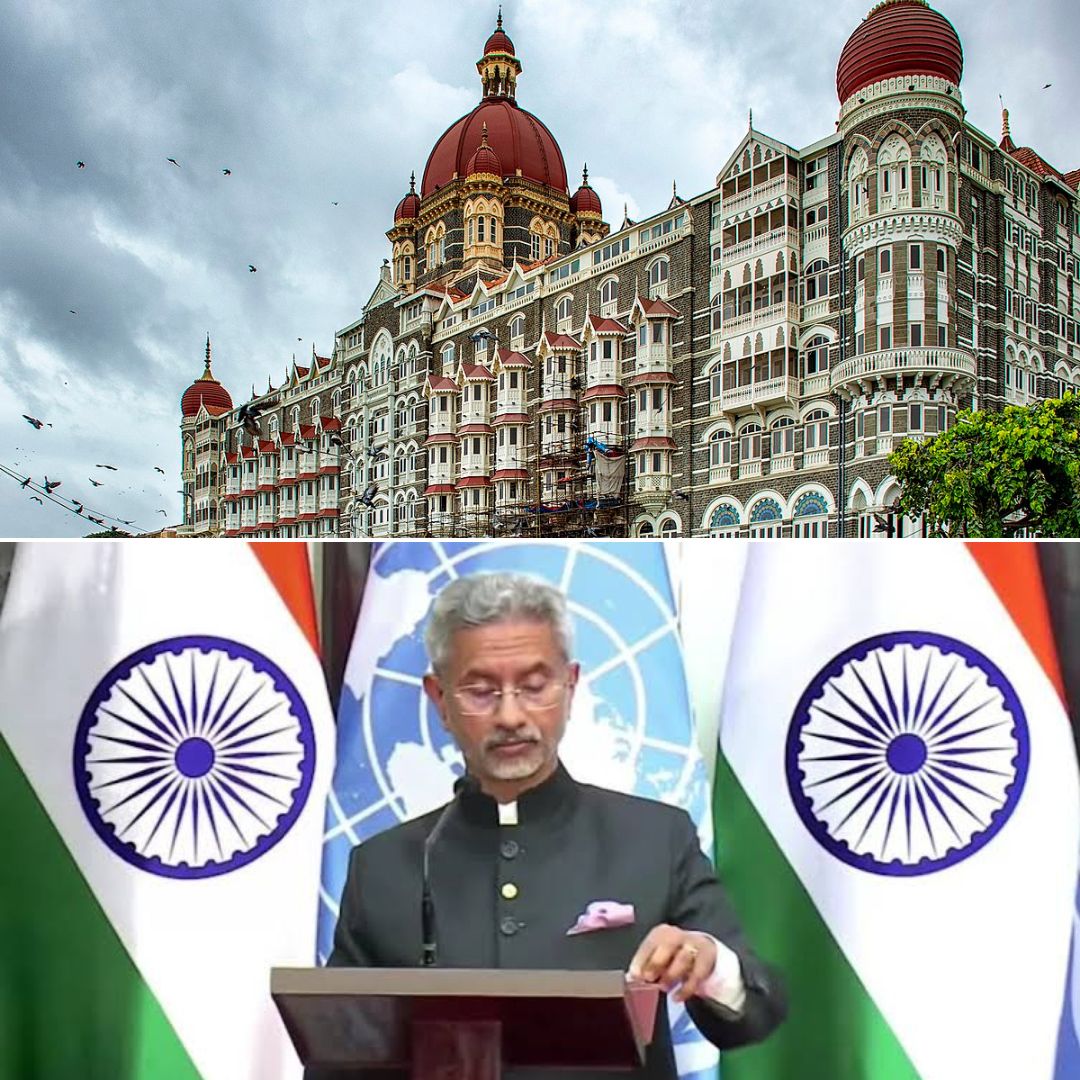
Image Credits: Wikipedia and Free Press Journal
Revisiting 26/11: Survivors Of Terror Attack Share Stories Of Loss & Grief At UNSC Meet
Writer: Laxmi Mohan Kumar
She is an aspiring journalist in the process of learning and unlearning many things. Always up for discussions on everything from popular culture to politics.
Maharashtra, 29 Oct 2022 8:04 AM GMT
Editor : Snehadri Sarkar |
While he is a massive sports fanatic, his interest also lies in mainstream news and nitpicking trending and less talked about everyday issues.
Creatives : Laxmi Mohan Kumar
She is an aspiring journalist in the process of learning and unlearning many things. Always up for discussions on everything from popular culture to politics.
The two-day UNSC anti-terrorism meet held at the Taj Hotel had survivors of the 2008 Mumbai Attacks recollect the incidents and become a part of the discussions held by the anti-terror committee.
The two-day United Nations Security Council (UNSC) anti-terrorism meet concluded on October 29 after discussions on 'Countering the Use of New and Emerging Technologies for Terrorist Purposes'. The meet was held for the first time in India, and the venue for the same was chosen mindfully. Taj Palace in Mumbai was chosen as the venue as the hotel that was targeted during the 26/11 Mumbai terror attacks and witnessed one of the gruesome bloodsheds.
The committee members said that it had to be held at the "very spot where this incident happened in tribute and in memorial." It was also chosen to send across a message about 'India's strong resolve to deal with terrorism'.
Stories Of Grief And Loss
The special meeting held by the Counter-Terrorism Committee invited four survivors from two terror attacks - the 26/11 and 2016 Brussels bombings.
The 2008 Mumbai attacks (26/11), one of the worst in India's history, was a series of attacks that lasted for four days between November 26 to 29. The attack was waged by members of an Islamist terrorist outfit from Pakistan, Lashkar-e-Taiba, who coordinated attacks at multiple locations across Mumbai. This included the Taj Hotel, Chhatrapati Shivaji Terminus, and Nariman House, among others. More than 150 people lost their lives during the attacks, and over 300 were left severely wounded.
Talking about the incident during the event, Minister of External Affairs S.Jaishankar said, "14 years ago, Mumbai witnessed one of the most shocking terror attacks of our times. 140 Indian nationals and 26 citizens from 23 other countries lost their lives in a period of four days."
One of the survivors, Moshe Holtzberg, was as young as two years old when he lost his father, Rabbi Gavriel and mother, Rivka Holtzberg, at the Nariman House attack. After his parents' demise, he moved to Israel to live with his grandparents. Sending in a pre-recorded message in Hebrew to the committee, he was among the few survivors who shared his stories with the crowd who had come to attend the meeting.
Devika Rotawan, now a final-year arts student, was shot by the Pakistani terrorist Ajmal Kasab at the Chhatrapati Shivaji Maharaj Terminus during the Mumbai attacks. She was as young as seven years old at the time and was key in identifying and testifying against Kasab at the court. Her testimonial, added along with other findings, led to the court convicting Kasab.
Speaking at the meeting, Devika said that ever since the incident, she has wanted to become a police officer so that she could combat terrorism. A report by Telegraph said that she also suggested implementation of stronger laws in the country to deal with terror.
Yet another person present at the meeting was late police constable Tukaram Ombale's wife. Ombale was among the officers who lost his life trying to capture the terrorists responsible for the attacks.
Saving People Always Remained The First Priority
Karambir Singh Kang, the then General Manager of Taj Hotel when the 26/11 attack happened, spoke of the events that had unfurled during the unfortunate day. Taj Hotel was one of the worst hit targets during the 2008 attacks, and the hotel administration was among the few people who were risking their lives to ensure everyone within the hotel premises was rushed to safety.
A report by the Hindustan Times quoted Kang recollecting the events and saying, "That evening, there were 2,000 guests and staff unarmed versus four heavily armed terrorists in this very place. My staff…risked their lives to save our guests, assisted by a few brave local policemen over the next 10-12 hours until we got help from the National Security Guard."
Many staff lost their lives, and KS Kang himself lost his wife and two young children in the process of saving others. However, they continued to bravely form human chains and took bullets selflessly to save the lives of those who trusted them.
Also Read: United Nations Pays Tribute To Victims Of Terrorism Worldwide, Includes 26/11 Mumbai Terror Attack
 All section
All section














